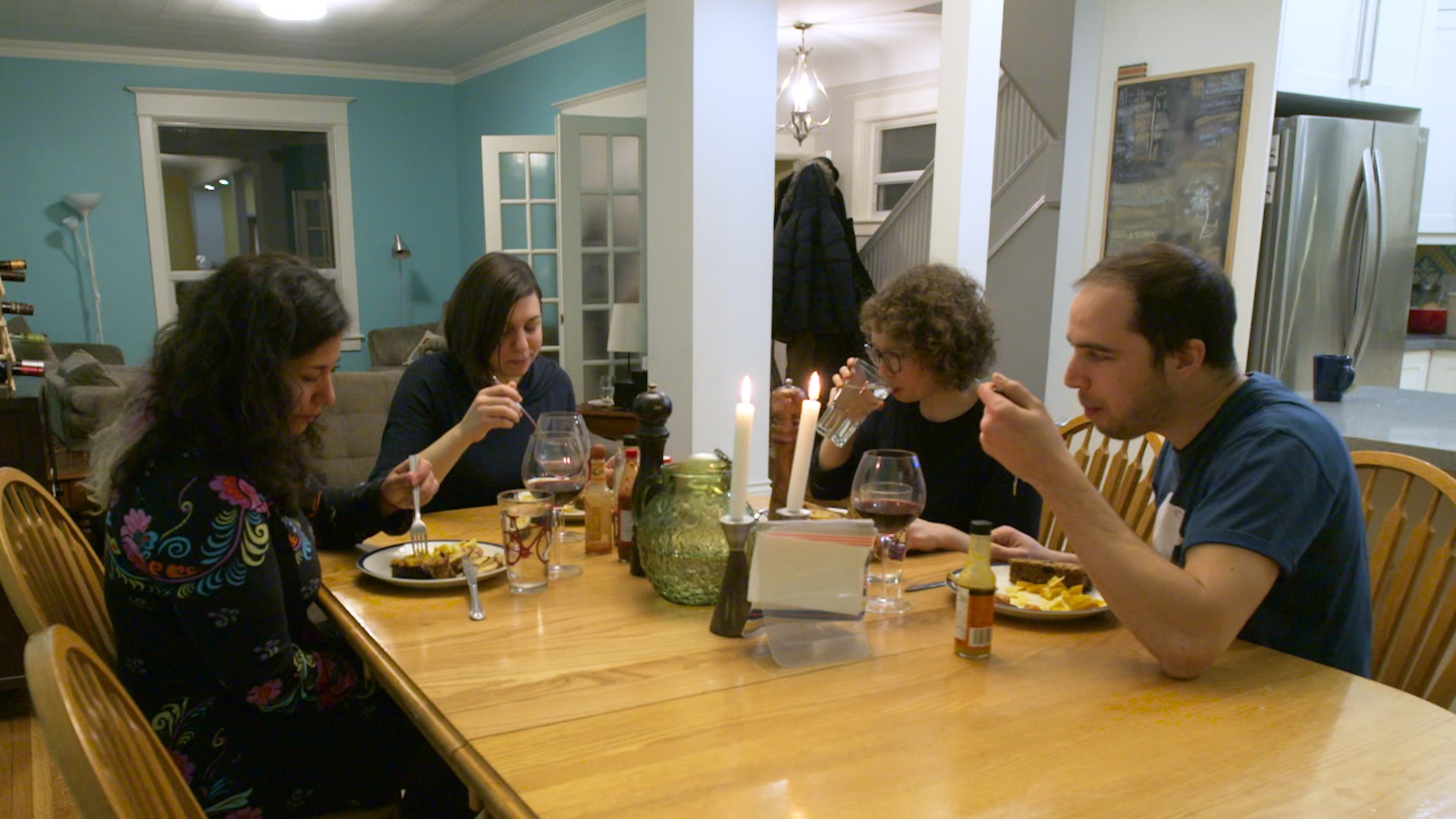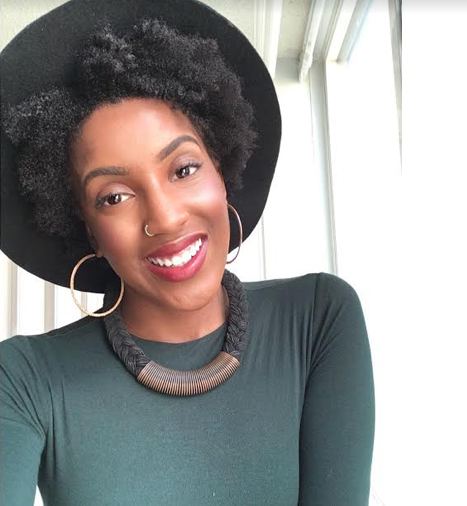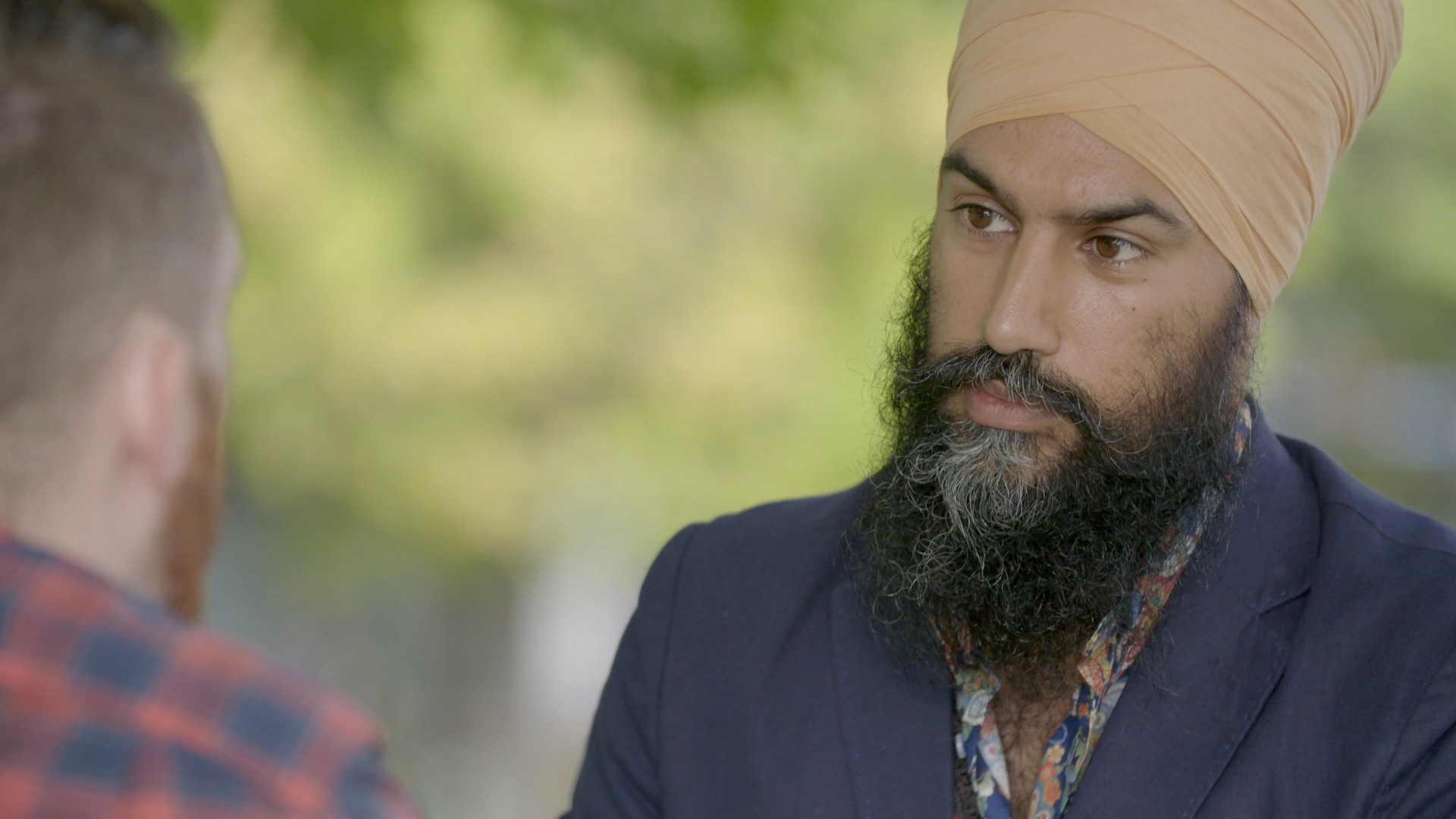There are a lot of reasons why the Toronto housing market is a hot mess. It’s increasingly unaffordable both to rent or to own in Canada’s biggest city and it boils down to three key problems: a lack of supply (meaning the type of units this market needs at a price that residents can afford), skyrocketing housing costs that most people can’t keep up with, and a population boom that exacerbates everything.A recent analysis by the Canadian Centre For Economic Analysis and the Canadian Urban Institute, looked at what feeds the city’s housing issues. It brings up alarming statistics that explain why young people who live in Toronto complain about feeling squeezed or stuck—working their butts off and not having more to show for it.Between 2006 and 2018, median household income grew 30 percent, while average home ownership costs grew 131 percent. Many of Toronto’s housing problems stem from this discrepancy and it puts pressure on young people, even ones who are “middle-class”—gainfully employed and wouldn’t struggle to make ends meet in a less expensive city. Housing advocates say that by squeezing the middle, low-income and vulnerable people in the city are put in a desperate situation. Only the wealthy are getting ahead and can afford what’s to come. It should come as no surprise that housing affordability is the top issue for voters aged 18 to 38 in the upcoming federal election. Politicians who are able to effectively tap into this affordability anxiety could sway the votes of millennials—if they bother to cast a ballot—who will be the single largest voting cohort in October. Key pieces of the most recent federal budget were aimed at young voters, and all three major parties are repeating the refrain that housing affordability is an important issue. And yet, according to housing experts and economists alike, none of the plans for housing that have been proposed by the Liberals, NDP, or Conservatives go far enough to effectively tackle all the problems that plague Toronto residents.Based on current housing prices, median-income renter households need between 11 and 27 years to save for a ten percent down payment on a median-price home. For a growing number of young people, waiting nearly three decades to get into the housing market is the new reality.If you’re not dealing with high home prices, then climbing rental costs will get you and eat away at savings. Rents are projected to increase 11 percent in Toronto this year alone after surging last year as well. Add to that the fact that the city’s population is estimated to grow by 40 percent to 9.7 million people over the next 22 years (that more than double its growth rate over the last 13 years), and the expected result is more people struggling to make ends meet and more competition in an already cutthroat housing environment.Emily Crocker is a 26-year-old Toronto renter who shares a place in downtown Toronto with two other roommates. She says she feels stuck, even though she is lucky enough to have not one but two jobs as a mental health worker, that pay reasonably well. The problem is that between her student debt and rising rents, she says if she wants to stay in the city, she has no choice but to get a third job and work seven days a week to get away from living from paycheck-to-paycheck.
It should come as no surprise that housing affordability is the top issue for voters aged 18 to 38 in the upcoming federal election. Politicians who are able to effectively tap into this affordability anxiety could sway the votes of millennials—if they bother to cast a ballot—who will be the single largest voting cohort in October. Key pieces of the most recent federal budget were aimed at young voters, and all three major parties are repeating the refrain that housing affordability is an important issue. And yet, according to housing experts and economists alike, none of the plans for housing that have been proposed by the Liberals, NDP, or Conservatives go far enough to effectively tackle all the problems that plague Toronto residents.Based on current housing prices, median-income renter households need between 11 and 27 years to save for a ten percent down payment on a median-price home. For a growing number of young people, waiting nearly three decades to get into the housing market is the new reality.If you’re not dealing with high home prices, then climbing rental costs will get you and eat away at savings. Rents are projected to increase 11 percent in Toronto this year alone after surging last year as well. Add to that the fact that the city’s population is estimated to grow by 40 percent to 9.7 million people over the next 22 years (that more than double its growth rate over the last 13 years), and the expected result is more people struggling to make ends meet and more competition in an already cutthroat housing environment.Emily Crocker is a 26-year-old Toronto renter who shares a place in downtown Toronto with two other roommates. She says she feels stuck, even though she is lucky enough to have not one but two jobs as a mental health worker, that pay reasonably well. The problem is that between her student debt and rising rents, she says if she wants to stay in the city, she has no choice but to get a third job and work seven days a week to get away from living from paycheck-to-paycheck. “At least a third of my income goes to paying my rent and then the rest of it is TTC and paying off my OSAP. The other third gets eaten up pretty quickly,” she told VICE. “I went to school and got these two jobs and it’s still not enough. Home ownership just gets farther and farther away.”What Crocker is going through is happening to people—especially millennials—across the city, according to Kenneth Hale who is a director at the Advocacy Centre for Tenants Ontario (ACTO). “People at the bottom of the heap here have been in this housing crisis forever and the fact that it’s moving up to people who are middle-class, who we always thought should be able to take care of themselves, is really concerning.”According to Hale, dealing with this crisis requires funding from all three levels of government and he’ll be looking at what, if anything, is promised in the Ontario budget which will be unveiled on Thursday.At the federal level though, both Hale and Crocker want to see housing recognized as a human right. It’s something NDP leader Jagmeet Singh referenced in a Toronto Housing Town Hall last week which he told VICE about. “I believe in that absolutely and I want to make that into something more concrete. We want to take this value or this principal and make it into a human right.”
“At least a third of my income goes to paying my rent and then the rest of it is TTC and paying off my OSAP. The other third gets eaten up pretty quickly,” she told VICE. “I went to school and got these two jobs and it’s still not enough. Home ownership just gets farther and farther away.”What Crocker is going through is happening to people—especially millennials—across the city, according to Kenneth Hale who is a director at the Advocacy Centre for Tenants Ontario (ACTO). “People at the bottom of the heap here have been in this housing crisis forever and the fact that it’s moving up to people who are middle-class, who we always thought should be able to take care of themselves, is really concerning.”According to Hale, dealing with this crisis requires funding from all three levels of government and he’ll be looking at what, if anything, is promised in the Ontario budget which will be unveiled on Thursday.At the federal level though, both Hale and Crocker want to see housing recognized as a human right. It’s something NDP leader Jagmeet Singh referenced in a Toronto Housing Town Hall last week which he told VICE about. “I believe in that absolutely and I want to make that into something more concrete. We want to take this value or this principal and make it into a human right.” Singh has tried to do this before, without success. Shortly after becoming he became the party’s leader, the NDP put forward a motion to enshrine the right to housing at the federal level. It was voted down by the Liberals earlier this year. The motion also called on Ottawa to build a lofty 500,000 new affordable housing units, but specifically requested that 250,000 of those be built in the next five years (he defines “affordable housing” as homes that residents don’t spend more than 30 percent of their income on, which is a benchmark that housing advocates also use).Singh’s national housing plan includes the building of 500,000 new affordable housing units, an HST/GST exception to incentivize the building of affordable housing, a doubling of the current tax credit to $1,500 for first-time home buyers, as well as rental subsidies for those most in need. The biggest criticism of his plan is the lack of detail on how to pay for it. Singh says partnerships with non-profits are a part of the equation.Trudeau’s housing plan is outlined in the budget, with interest-free loans for first-time home buyers who qualify, of five percent towards the purchase of an existing home and ten percent towards a new build. First-time home buyers will also see an increase in the amount they can take out of their RRSP penalty-free, towards a down payment, from $25,000 to $35,000. Economists have said that this approach won’t make a big dent in the country’s biggest and most expensive housing markets including Toronto.To tackle the all-important issue of supply, the Liberals pledged an additional $10 billion for a program to fund the construction of new rental units across Canada. This is the third time the Liberals have added money to this program which seeks to create 42,500 new units at a price of $50 billion total. Most of the funding will start to flow after the election, which means that it hinges on a second Trudeau term.Federal Conservative leader Andrew Scheer has, like Trudeau and Singh, have stated repeatedly that housing affordability is a very important issue for his party and is a topic he hears about often from young people across the country. Scheer has said that his approach includes making it easier to qualify for mortgages, increasing the supply of homes and fast-tracking the process of getting new units to the market. The Conservatives did not respond to VICE’s request for more details.Hale says there are several issues specific to Toronto that need to be dealt with through policy and better enforcement of existing rules: from cracking down on renovictions to ensuring that plans to build new homes aren’t held up by lengthy delays, to inclusionary zoning (which would require developers to include a percentage of below-market cost units to get a residential project approved). Many of them are provincial and municipal matters, but ultimately, he says there has to be a strong signal from the feds that getting this right is a priority.Sign up for the VICE Canada Newsletter to get the best of VICE Canada delivered to your inbox.Follow Anne on Twitter .
Singh has tried to do this before, without success. Shortly after becoming he became the party’s leader, the NDP put forward a motion to enshrine the right to housing at the federal level. It was voted down by the Liberals earlier this year. The motion also called on Ottawa to build a lofty 500,000 new affordable housing units, but specifically requested that 250,000 of those be built in the next five years (he defines “affordable housing” as homes that residents don’t spend more than 30 percent of their income on, which is a benchmark that housing advocates also use).Singh’s national housing plan includes the building of 500,000 new affordable housing units, an HST/GST exception to incentivize the building of affordable housing, a doubling of the current tax credit to $1,500 for first-time home buyers, as well as rental subsidies for those most in need. The biggest criticism of his plan is the lack of detail on how to pay for it. Singh says partnerships with non-profits are a part of the equation.Trudeau’s housing plan is outlined in the budget, with interest-free loans for first-time home buyers who qualify, of five percent towards the purchase of an existing home and ten percent towards a new build. First-time home buyers will also see an increase in the amount they can take out of their RRSP penalty-free, towards a down payment, from $25,000 to $35,000. Economists have said that this approach won’t make a big dent in the country’s biggest and most expensive housing markets including Toronto.To tackle the all-important issue of supply, the Liberals pledged an additional $10 billion for a program to fund the construction of new rental units across Canada. This is the third time the Liberals have added money to this program which seeks to create 42,500 new units at a price of $50 billion total. Most of the funding will start to flow after the election, which means that it hinges on a second Trudeau term.Federal Conservative leader Andrew Scheer has, like Trudeau and Singh, have stated repeatedly that housing affordability is a very important issue for his party and is a topic he hears about often from young people across the country. Scheer has said that his approach includes making it easier to qualify for mortgages, increasing the supply of homes and fast-tracking the process of getting new units to the market. The Conservatives did not respond to VICE’s request for more details.Hale says there are several issues specific to Toronto that need to be dealt with through policy and better enforcement of existing rules: from cracking down on renovictions to ensuring that plans to build new homes aren’t held up by lengthy delays, to inclusionary zoning (which would require developers to include a percentage of below-market cost units to get a residential project approved). Many of them are provincial and municipal matters, but ultimately, he says there has to be a strong signal from the feds that getting this right is a priority.Sign up for the VICE Canada Newsletter to get the best of VICE Canada delivered to your inbox.Follow Anne on Twitter .
Advertisement

Advertisement

Advertisement

Advertisement